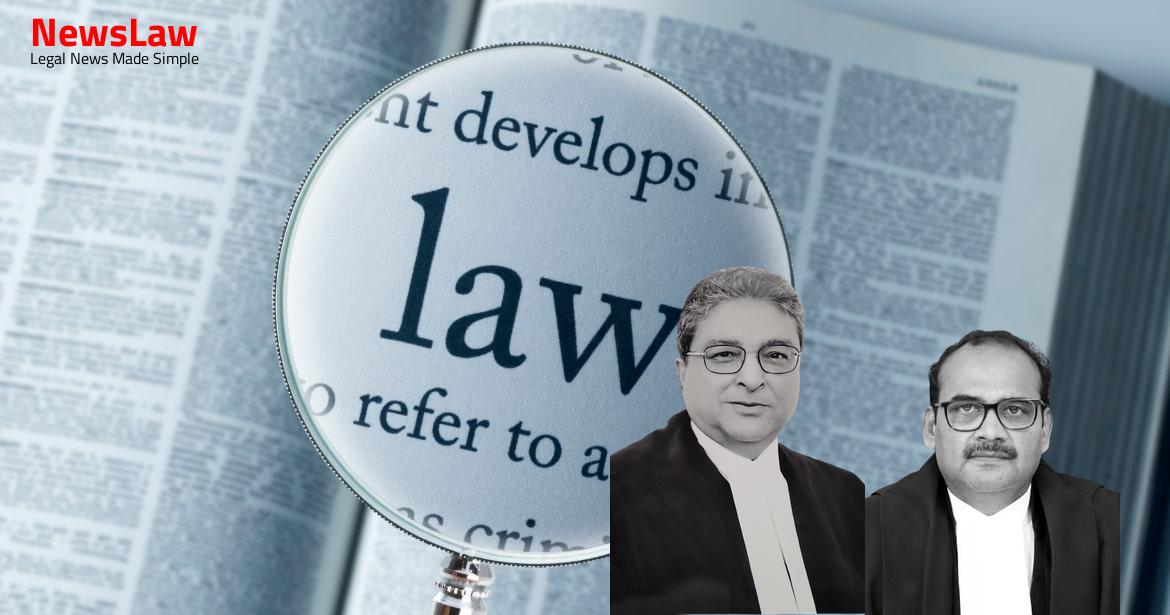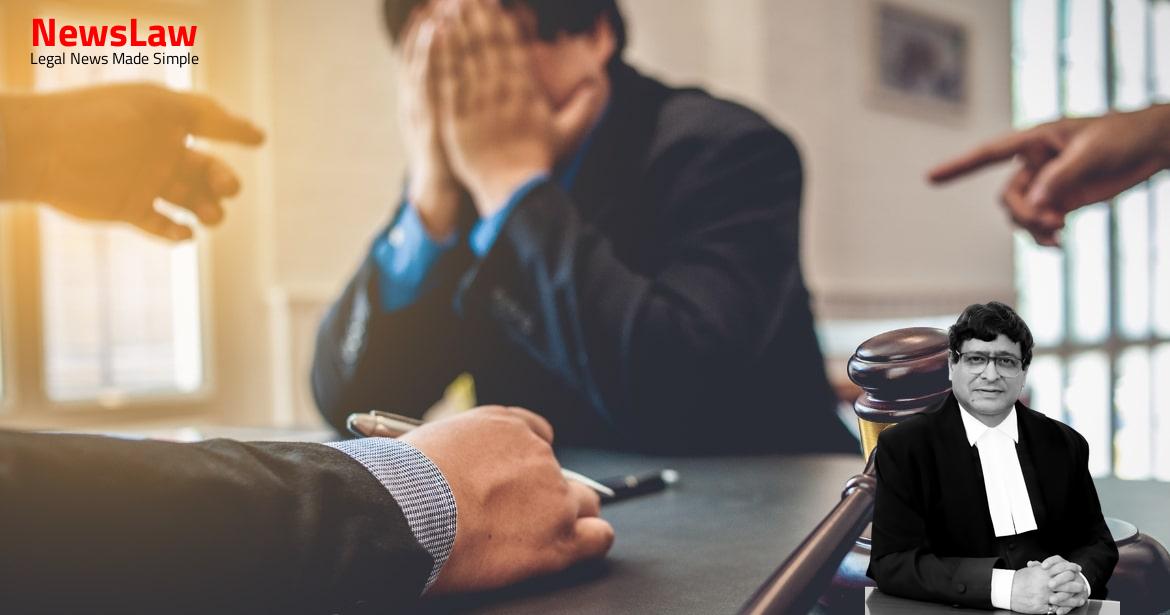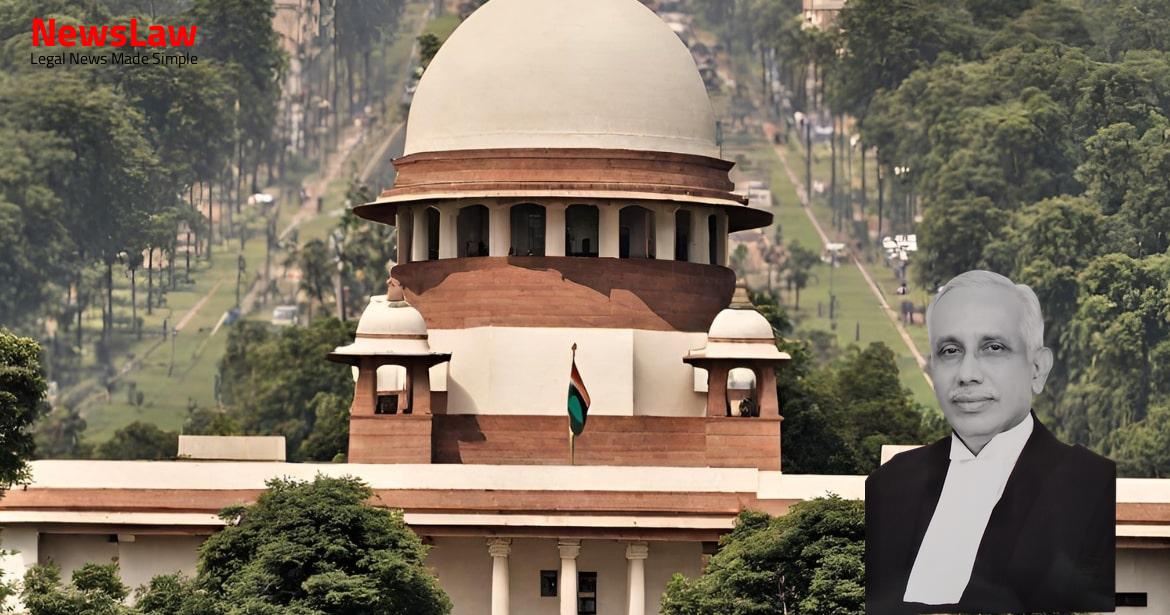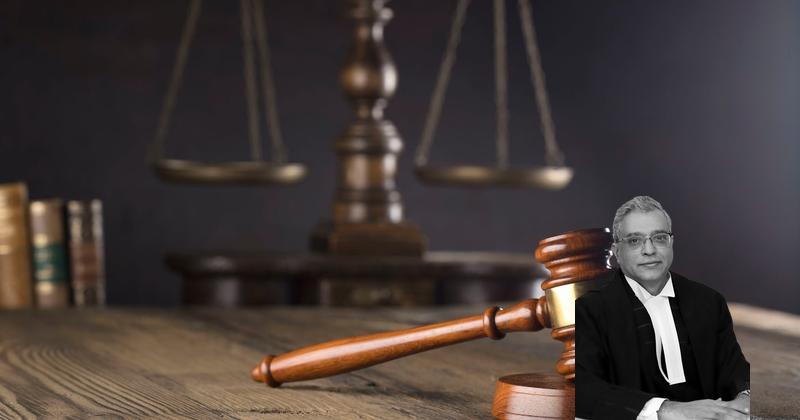Dive into the meticulous legal analysis conducted by the court on insider trading allegations in a recent case. The focus is on dissecting the interpretation of regulations, burden of proof, and the application of legal principles regarding insider trading. This case summary sheds light on the intricate details of the court’s reasoning and the emphasis on concrete evidence and proof in cases involving allegations of insider trading.
Facts
- The appellants filed appeals before the SAT against the SEBI order, which were dismissed.
- PC Jeweller Ltd. was previously P. Chand Jeweller Pvt. Ltd. before being converted into a Public Limited Company in 2011.
- Balram Garg, the brother of P.C. Gupta and Managing Director of PCJ, is considered a connected person and insider as per regulations.
- Allegations of insider trading were made against the appellants for trading on UPSI between 01.04.2018 to 31.07.2018.
- The appellants were allegedly connected to Balram Garg through family relations.
- Balram Garg denied the allegations stating lack of foundational facts and material to prove them.
- The genesis of the dispute stems from SEBI’s actions based on an impounding order and show-cause notice.
- P.C. Gupta, a connected person and insider, was the Chairman of PCJ during the relevant period.
- Sachin Gupta resigned from his post at PCJ post a family partition, and had no further involvement with the business.
- P. Chand Jeweller Pvt. Ltd. was initially a Private Limited Company before becoming PC Jeweller Ltd.
- Late Padam Chand and appellant Mr. Balram disseminated UPSI to the appellants in appeal no. 376 of 2021.
- The SAT’s order dated 21.10.2021 was challenged by the appellants through present appeals.
- The appeals were filed under section 15Z of the SEBI Act.
- P.C. Gupta, who passed away in January 2019, was dropped from the case as the notices were issued after his demise.
- SEBI’s Whole Time Member imposed a penalty of Rs. 20 lakhs on the appellants and restrained them from accessing the securities market for a year and dealing with the scrip of PCJ for 2 years.
- The SAT, in its judgement dated 21.10.2021, dismissed the appeals and upheld SEBI’s penalties and restrictions.
Also Read: Land Compensation Dispute: Legal Analysis
Arguments
- The Respondent/SEBI failed to place evidence on record regarding Unpublished Price Sensitive Information-2 (UPSI-2), which was likely to affect the share price.
- Allegations against the appellants were not part of the Show Cause Notices, violating principles of natural justice.
- Reliance on transactions between Sachin Gupta and PCJ by the Respondent was against natural justice as these allegations were not part of the show cause notices.
- The burden of proof on proving insider trading was on SEBI but they failed to produce concrete evidence.
- The charges against the appellants were based on circumstantial evidence and trading patterns, lacking substantial proof.
- SEBI failed to prove that the appellants were ‘connected persons’ under Regulation 2(1)(d) of PIT Regulations.
- Appellants demonstrated a breakdown in ties prior to the UPSI coming into existence.
- The SAT reversed the burden of proof on the appellants, shifting the onus from SEBI to prove possession of UPSI.
- Balram Garg was found to have violated Regulation 3 of PIT Regulations and no presumption could be raised under the said regulation.
- The appellants in C.A. No.7590 of 2021 were claimed to be in possession of UPSI-1 & 2 from Balram Garg.
- The appellants claimed estrangement from the family and lack of connection with Balram Garg, which was rejected by WTM and SAT.
- The relationship between the appellants and Balram Garg as MD of PCJ was crucial to the case.
- Judgements of SEBI vs Kishore R. Ajmera and Dushyant N. Dalal vs SEBI were considered, but deemed distinguishable from the present case.
- Presumption drawing based on immediate and relevant facts was argued against using the case of Chintalapati Srinivasa Raju as precedent.
Also Read: Correct Date of Birth Determination for VRS Benefits
Analysis
- The first appellate court has the duty to address all issues and evidence raised by the parties on questions of law and fact.
- The High Court should have dealt with all issues and evidence before recording findings regarding title.
- Allegations of insider trading were based on the nature of close relationships between the parties, which was found legally unsustainable as the appellants were not connected persons or immediate relatives under regulation.
- The onus of proving that connected persons were not in possession of UPSI lies with the connected persons, while in other cases, the burden is on the Board.
- Regulation defines connected persons broadly to include those in regular touch with the company or its officers.
- The imposition of prohibition on unlawfully procuring insider information is emphasized.
- The judgement questions the presumption of communication of UPSI based on shared address, highlighting the need for concrete evidence of communication.
- The trading pattern of the appellants is argued not to be sufficient circumstantial evidence to prove communication of UPSI.
- The court found errors in the SAT ruling regarding the appellants being considered insiders based on circumstantial evidence.
- The judgement questions the assumptions made about trading decisions during different periods and conditions.
- The interpretation of the law regarding the burden of proof in insider trading cases is emphasized.
- The need for concrete evidence and proof of communication or possession of UPSI is highlighted.
- The accused in such an event would be entitled to show that he has not violated the provisions of the Act.
- The SAT order in Utsav Pathak vs SEBI 14 highlighted the importance of foundational facts in drawing inferences.
- Circumstantial evidence should be of a conclusive nature and exclude other hypotheses.
- The connected person must be reasonably expected to have access to unpublished price sensitive information.
- The WTM found that the appellants were not connected persons regarding the alleged insider trading.
- Reverse burden and statutory presumptions can be raised in certain statutes.
- Proof of allegations may be inferred from the totality of facts and circumstances.
- Presumption is raised only when certain foundational facts are established by the prosecution.
- The Securities and Exchange Board of India Act, 1992 contains provisions to protect the interests of investors and regulate the securities market.
- The Act empowers the Securities and Exchange Board of India (SEBI) to take measures to safeguard investor interests and market development.
- SEBI is authorized to suspend trading of securities, restrain market access, impound proceeds, and attach bank accounts in cases of violation or investigation.
- Prohibitions against insider trading, fraudulent practices, and deceptive devices are outlined in the Act.
- Penalties for insider trading include fines ranging from ten lakh rupees to twenty-five crore rupees, or three times the profits made.
- The Act defines terms related to securities trading and insider information, ensuring regulatory compliance and accountability.
- Insider trading regulations include restrictions on trading with unpublished price-sensitive information, with penalties for violations.
- Connected persons and promoters are defined within the regulations to prevent misuse of insider information.
- Restrictions on communication of unpublished price-sensitive information ensure fair trading practices and market integrity.
- The regulations aim to prevent fraudulent activities and ensure transparency and fairness in securities transactions.
- SAT order lacks application of mind
- SAT order merely repeats facts stated by the WTM
Also Read: Legal Analysis: Exoneration in PMLA Case
Decision
- The Appellate Tribunal failed to independently assess the evidenced and material on record
- The appeals have been allowed and the impugned judgement and final orders of WTM and SAT are set aside
- Deposits made by the appellants in both appeals as per the impugned or interim orders of the Court shall be refunded to the respective appellants
- No orders as to costs
Case Title: BALRAM GARG Vs. SECURITIES AND EXCHANGE BOARD OF INDIA (2022 INSC 442)
Case Number: C.A. No.-007054 / 2021



